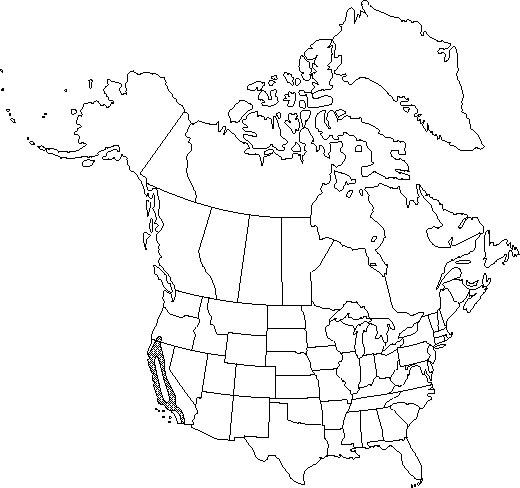Eschscholzia caespitosa
Trans. Hort. Soc. London, ser. 2, 1: 408. 1835.
Treatment appears in FNA Volume 3.
Revision as of 21:51, 5 November 2020 by imported>Volume Importer
Plants annual, caulescent, erect, tufted, 5-30 cm, glabrous, sometimes slightly glaucous. Leaves basal and cauline; blade with ultimate lobes short (giving compact appearance), obtuse or acute. Inflorescences cymose or 1-flowered; buds erect, apiculate-acuminate, tip usually more than 1/4 length of bud. Flowers: receptacle obconic, less than 2.5 mm broad, cup without spreading free rim; calyx apiculate, glabrous; petals yellow, sometimes with orange spot at base, 10-25 mm. Capsules 4-8 cm. Seeds brown to black, ellipsoid to obovoid, 1.5-2.4 mm, reticulate. 2n = 12.
Phenology: Flowering spring (Mar–May).
Habitat: Open chaparral
Elevation: 0-1500 m
Distribution

Calif., Oreg., Mexico (Baja California).
Discussion
Eschscholzia caespitosa grows in the mainland foothills.
Selected References
None.
Lower Taxa
None.